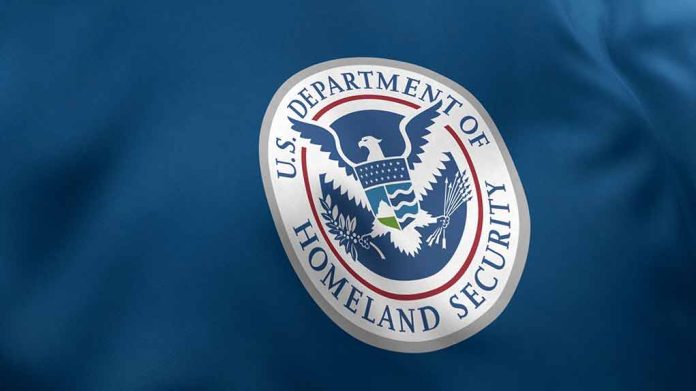
The Department of Homeland Security critiques media narratives skirting the security threats posed by the Tren de Aragua gang.
Key Takeaways
- DHS disputes narratives portraying Tren de Aragua members as victims rather than criminals.
- The gang is linked to serious crimes and poses a significant community threat.
- DHS criticizes prior policies that released these individuals into American communities.
- Efforts are in place to protect children from criminal influences linked to the gang.
DHS Challenges Media Portrayals
The Department of Homeland Security (DHS) has expressed concerns regarding media coverage that it believes downplays the threats posed by the Tren de Aragua gang. This Venezuelan gang, linked to the Maduro government, is associated with serious crimes, including murder and sexual assault. The DHS objects to narratives which frame detained gang members as victims of harsh policies, suggesting they pose significant risks to U.S. communities if released.
The agency specifically calls out reports by outlets like Reuters, accusing them of focusing on the plight of suspected gang members rather than their criminal activities. This gang has been classified as a “foreign terrorist organization” by the Trump State Department. Incidents such as Tren de Aragua detainees forming an “S-O-S” sign in a Texas detention center were highlighted by Reuters, which the DHS criticized as being overly sympathetic towards these individuals.
Safety Concerns and Child Welfare
The DHS clarifies that children have been removed from gang-linked parents to ensure their safety. In one significant case, a child was taken from parents who were high-ranking gang members involved in smuggling and trafficking. The department emphasizes protecting these children from exposure to their parents’ criminal activities.
“Due to the violent criminal activities of the parents, including operating a torture house, sex trafficking and kidnapping, the child was removed from their custody. We will not allow this child to be abused and continue to be exposed to criminal activity that endangers her safety,” said a senior DHS official.
Under the current administration, over 5,000 unaccompanied children have been reunited with relatives or safe guardians, reversing previous policies accused of endangering minors. The department utilizes tools like biometrics and DNA testing to safeguard child welfare, a critical concern given the potential for abuse.
Past Failures and Present Solutions
Tren de Aragua’s history of criminality continues to raise alarms. The DHS accuses the previous administration of lax policies that allowed gang members to integrate into U.S. communities. The current administration ended the “catch and release” practices, aiming to restore security.
“The previous administration released these gang members into our communities, President Trump and Secretary Noem have ended catch and release and will not allow criminal gangs to terrorize American citizens,” said Assistant Secretary Tricia McLaughlin.
DHS continues to stand firm against mischaracterizations, arguing that true safety lies in highlighting the risks associated with dangerous criminal elements, rather than obscuring them through sensational reporting.





